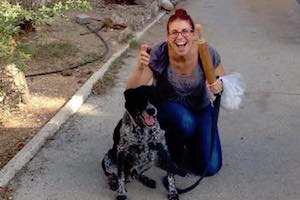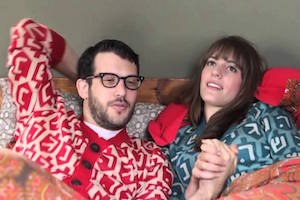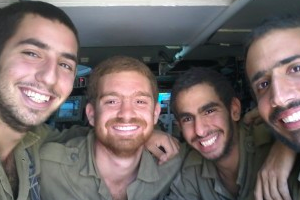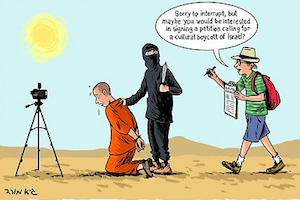From BDS to Comedy
By Noémi Schlosser
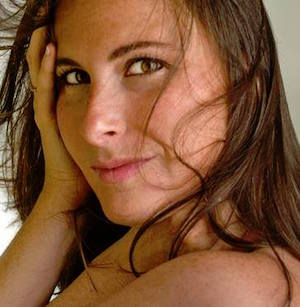
My name is Noemi, I studied at the Royal drama school in Antwerp, Belgium to become an actor and director. A teacher once argued with me “You can’t talk with Jews.”
A drunk fellow student caught my head during a party under his armpit and rubbed his fist on my nose saying, “your nose doesn’t look that bad for a Jewess.”
Writing my first grant application someone genuinely wondered why I was saying I struggled with budgets, “because I was Jewish after all, and the Jews of all people know how to book keep.”
A few years later I received my first residency, I was invited to work in a theater in America. Obviously it wasn’t because I was good at what I did, or because I worked hard. No, that had all been thanks to that “Jewish Lobby”. (the sarcasm is oozing…)
When I was younger I never expected this to be the language of the educated people, the artists, the cultural elite I was studying amongst. Antisemitism was something backward, for people who had never met a Jew and were susceptible to prejudice.
I say this, although since kindergarten I have always been aware that I was a Jew amongst non Jews, as the world around me used every opportunity to make sure I wouldn’t forget I was different. Don’t get me wrong I am more than grateful for the amazing education I have received, the extremely talented and dedicated teachers that have sculpted me. I am equally thankful for the social system that provided for my education and health care in place in Belgium. I was part of a society, in a way I still am. But about seven years ago that you could feel a clear shift in Antwerp, Flanders in Belgium regarding publicly displaying antisemitism and especially anti-Israel feelings. Since 2012 it is almost a statement of political correctness to call yourself an “anti-Zionist” (in other words anti-Israel meaning in fact antisemitism) within the artistic Flemish Left - artists actively signing petitions and writing open letters to newspapers to boycott Israel even outside the original BDS movement.
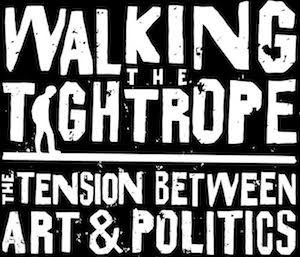
During the summer of 2014 the Tel Aviv museum invited Belgium painter Michaël Borremans for a special expose of his work. The Flemish artist community ferociously pressured him to cancel the exhibit. They even wrote and signed, as a group, a letter in one of the biggest newspapers, that if he really wanted to have an exhibit it should be in Gaza. A rather ridiculous statement, that made me snort in contempt realizing that by stating this particular condition, proved how little my fellow Flemish artists really understood about what was going on during protective edge.
BDS has now become institutionalized in many realms, such as the music conservatory from Ghent. Out of protest, the viola teacher (Jewish, not Israeli) left and went to teach in another city. Even my co-producing theater forbid me to take a stand for Israel when I was producing my ‘Crisis Cabaret’ in 2013. I wasn’t even going to mention Israel, as the show was using only inter-bellum Yiddish, German and French songs by Hollaender, Spolianski and Weill, and some sketches. All of them talking about financial crisis, social crisis, political crisis, moral crisis, the job market etc. The show went on, the audience was affluent enough, even if I had received only half the amount of nights that I usually get booked by the theater because of the ‘sensitive’ (read, Jewish) material I was bringing to the stage. I kept my mouth shut about Israel. I did however sing the 1933 song by Jewish composer Friedrich Hollaender, “It's always time to blame the Jews.” I couldn’t help it... Maybe not every institution goes that far, but antisemitism is there.
Last fall I opened my original show, “TRAKTORFABRIK,” (meaning ‘The Tractor Factory’). I was inspired to write it after reading the war diaries of Stalingrad Russian Jewish journalist, Vasily Grossman. For the four following years all I read were first hand diaries and testimonies of soldiers, civilians, prisoners and partisans from World War I to the present day.
In my play three soldiers are stuck in a bunker during a war. I wrote the final version during Operation Protective Edge (summer 2014), when I was in Tel Aviv. Being active on social media I obviously read how the world and Flanders (the Flemish speaking part of Belgium where I live) was reacting to Israel’s military actions. An unprecedented wave of hate speech followed instantly, with the usual accusations from killing Palestinian civilians on purpose to dropping cancer inducing bombs on Gaza city. Meanwhile making Hamas sound like a group of jolly freedom fighter underdogs.
Not able to contain myself I actively shared another side of the conflict on the same social media sites. I gave the perspective that doesn’t make the Belgian news. No need to say people got very emotional on social media, especially the artist community (who, when it came to art related stuff completely ignored me). They posted an unimaginable amount of threads and posts on my personal Facebook page regarding Gaza.
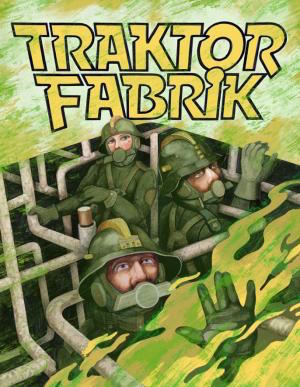
So when I came back to Belgium that fall to rehearse and open “TRAKTORFABRIK,” I got a consciously cold shoulder from the press and the artistic community. Nobody came. My position on the conflict translated in extremely poor ticket sales and lack of media attention related to my theater work. Ironically the play is about war, totalitarianism and the loss of humanity.
On one of the worst nights I had 16 people in the audience. I used to fill theaters with my plays. After the first run of shows from October to December 2014, I left to Israel to lick my wounds, see my family and find that husband I have been longing and looking for. I dated, went out, listened to dating stories of girlfriends, lived the life of every 36-year-old single female in a big city. In the late spring I had to go back for the final performance of “TRAKTORFABRIK,” in a smaller town, where no one knows me as being pro-Israel. Strangely enough that show was almost sold out.
That is when I realized that it wasn’t something in my head, but proof, that in my hometown where artists “know” each other, they had specifically turned their backs on me.
I had a message, I had a vision, I had a story. And nobody heard it. So I wanted to give up theater all together after thirty years on the stage (I started at the age of 6 and wrote and directed my first play at the age of 10). Why work so hard if you can’t reach an audience? “TRAKTORFABRIK” had received a great review in New York. In Belgium not a single critic came to see the show. I was already kissing future projects goodbye, because I didn’t have the energy. I assumed that anyhow I would not get funding after the disaster in ticket sales and the shifting political climate. I was burnt out. I was persona non grata amongst my peers.
The summer 2015 arrived and I decided to go back to Tel Aviv. Because I was exhausted. Because I was sad. Because I still had not found that husband. And, because Tel Aviv became my anti-depression medicine. I feel alive here.
The Tel Aviv English speaking theater company, the Stage, was hosting an open mic night and together with my friend Julie we decided to try out some of my new material about dating. The Tel Aviv dating scene is so theatrical, so different because of the unique situation this city provides. Young Jewish people from all around the world, come to live in Tel Aviv: the most beautiful men and women I have ever seen are there. People at the open mic laughed and loved it and moreover asked for more.
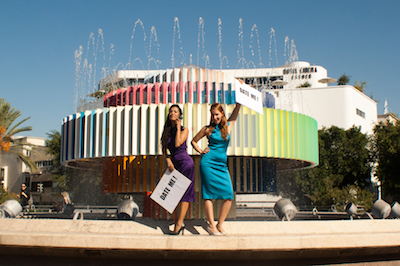
As I was in need of a good laugh myself, after writing way too many plays on emigration and war, I decided to pen down the stories my friends relish in when I tell them my adventures in the big bad dating world. I created two characters an olah and a sabra who find themselves marooned at the bar at yet another wedding party. They start telling each other about their escapades and disappointments, their near sex experiences and sink-into-the-ground moments and disasters. As well as the cultural differences they encounter not only because of the international vibe of the city but also with those strange creatures called men.
I dated extensively, mostly to truly find the father of my children, but also for--don’t laugh-- research. It became a social experiment. I asked people to share their worst and best experiences with dating in the White City (that would be Tel Aviv’s other name). “DATE ME in TLV!” is based on real situations often spiced up and with extra twists and some fantasy, my personal experiences, and that of my friends. I added extra embarrassing moments because even comedy needs some drama.
The two characters are obvious parodies, a comical exaggeration. I found two amazing Israeli actresses Ayala Shiftan and Yifat Sharabi for the parts. My goal is to make people laugh and reflect on their dating experiences, even adding to the show a panel of 'sexperts’ in sex, relationships, dating, and matchmakers to talk about love in the Holy Land.
That's why, after the 35-minute showcase, on November 25th, at Ozen Bar (48 King George, for any of you in Israel reading this), I have invited a panel of 'sexperts’ experts in sex, relationships, dating, and matchmakers to talk about love in the Holy Land.
Hopefully our showcase will open doors and help us bring the full 80-minute production next Spring, in both English and Hebrew, to theaters across Israel and internationally. It’s very hard and expensive to create theater in Israel so I invited the local theater community, producers, press and event managers to come laugh with us and hopefully take the show under their wings. I reckon that just as with husbands you only need one promoter who believes in you to take you to the next level. The show has depth and questions our society using sexappeal and humor. I can only hope it becomes popular and the place to be on Thursday nights this summer in Tel Aviv before going out.
Meanwhile I’m still looking for love myself, so if you know of a good Jewish guy, that will make my heart beat a little faster, please let me know. I am in the process of moving to Israel and making Aliyah, since I don’t feel at home anymore in Belgium. And my best chances on making a successful transition is if I build solid roots in Israel right? Love is the key… After all, you don’t learn Hebrew in the classroom as well as you can with a lover in the bedroom, nachon (right)?!!
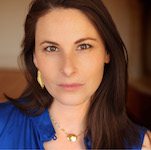
Noémi Schlosser is an established Belgian theater actor, director, writer and producer who graduated under Ivo van Hove in 2001. In 2004 she founded the mixed media theater company Salomee Speelt and has been the artistic director ever since. She has performed plays internationally throughout Morocco, Europe and the USA with the support of both Flemish Government and European Union.


